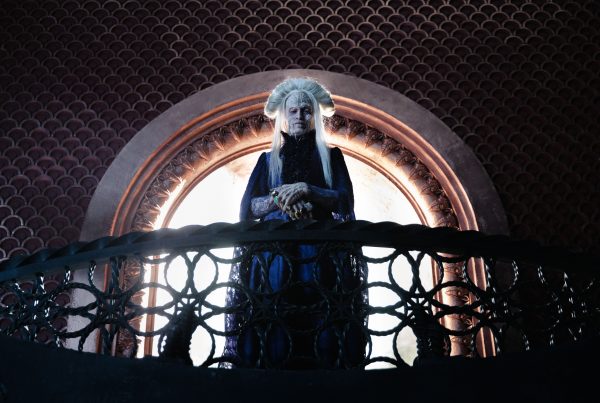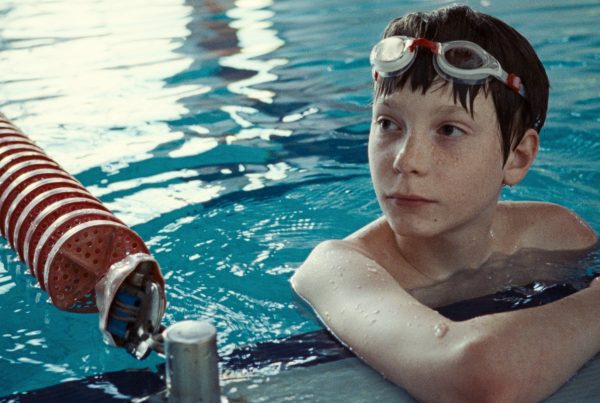
It’s never a clear day in Wong Kar Wai’s new kung-fu biopic “The Grandmaster.” When his characters spar outside, they’re always doing so amid torrential downpours or bitter snowstorms, working with and against nature. This is appropriate for a film that positions martial arts in cosmic, as much as romantic, terms––as an elemental exploration of the poetry of combat in which earth, water, air and fire take on an almost tactile energy. In other words, this is what a commercial action movie looks like when handled by Wong, a perennial darling of the international art house.
Shot over a five-year period – it’s Wong’s first movie since 2007’s meandering “My Blueberry Nights” – “The Grandmaster” tells a portion of the life story of Ip Man (Tony Leung), the Southern Chinese kung fu grandmaster who would later train Bruce Lee, among other talented fighters. The story charts Master Ip’s ascent toward his own legendary status, beginning in 1936 and escalating through world wars, civil wars and Communist takeovers. All the while he longs to reconnect with northerner Gong Er (Ziyi Zhang), the only fighter to ever defeat him, and who has withdrawn from martial arts for an unfulfilling life in medicine. More so than a traditional kung fu film, “The Grandmaster” is a melancholic love story – melodramatic to a fault – about star-crossed rival paramours town apart by honor, region and factionalism.
There’s no question that “The Grandmaster” is Wong’s most populist and audience-pandering movie, and it will no doubt strike many as a disappointing sell-out. The repression of love and desire, which reached is emotional apotheosis in Wong’s 2001 masterpiece “In the Mood for Love,” comes across here as a series of soap-opera style shot-reverse-shots backed by a manipulative score.
What makes the film still worth seeing is the director’s approach to the action scenes, as Ip Man tests his mettle against a myriad of kung fu styles and opponents. Watching two people fight has rarely been so poetic, and it recalls art forms other than cinema: The battles are choreographed like ballets, with the sweeping grandiosity of operas and the sumptuous textures of Renaissance art. Characters take hits by soaring majestically through the air in a defiant rejection of realism, and Wong invests their precise movements in languorous, slow-motion takes, intoxicating in their near-inertial stylization.
It’s a great example of a director enforcing his own personality over subpar material; if the entire picture had moved with such formal grace, it could have another benchmark in his career. Instead, it’s only an intermittently exciting subversion of conventional storytelling.
“The Grandmaster” opens Friday at area theaters.
***

It wouldn’t be accurate to say that “Closed Circuit” feels ripped from the headlines, but it’s at least perforated and delicately cut from them. It’s about the prosecution of a seemingly cut-and-dry case of Islamic terrorism in London that goes awry when crusading defense attorney Martin (Eric Bana) and the suspect’s public advocate, Claudia (Rebecca Hall), uncover a corrupt connection to MI5, Britain’s answer to our National Security Agency. The more they dig into the conspiracy, the more it becomes clear that our beleaguered heroes – who happen to be former lovers whose affair ended in disgrace – are being harassed by the surveillance state. It starts with little things – a book slightly out of place on Claudia’s shelf, the fact that Martin seems to be hailing the very same taxicab day in and day out – and soon becomes life-threatening.
This fashionably anti-government thriller is, at the very least, an agreeably adult movie plugged into our international zeitgeist, and it’s nice to encounter everyday protagonists who are just as insecure and flawed as the rest of us. But the never achieves the pulse-pounding pace it’s angling for. Its plot twists seldom shock; we’re far too jaded to be surprised by an alphabet agency that abuses its power. And as “Closed Circuit” progresses through its labyrinthine structure, there are as many logical gaps in the plot as there are hidden cameras on city streets.
“Closed Circuit” opens today at area theaters.







